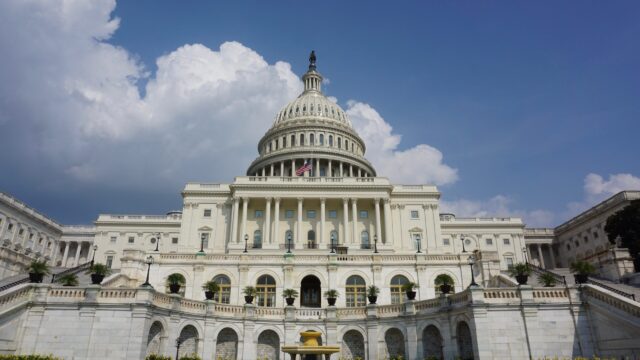BCHC and others ask Congress to increase funding for public health firearm research in FY26
May 2025

Big Cities Health Coalition (BCHC) and over 400 organizations are asking Congressional appropriators to provide $35 million for the Centers for Disease Control and Prevention (CDC), $25 million for the National Institutes of Health (NIH), and $1 million for the National Institute of Justice (NIJ) to conduct public health firearm research.
Signers on this letter represent many medical, public health, and research organizations, including members who are proud firearm owners. The freedom of individuals to own firearms can and should be balanced with protecting children and their families from serious harm, and ensuring the health, security, and well-being of all people. This is why our organizations strongly support federal funding for research into firearm morbidity and mortality prevention.
We are grateful to Congress for providing $12.5 million for the CDC and $12.5 million for the NIH in FY 2025 and encourage Congress to sustain and build on this funding in FY 2026. These agencies, along with the NIJ, are complementary yet uniquely integral to this work. The CDC focuses its research efforts on preventing firearm-related injuries and sharing vital public health statistics; the NIH focuses on using health system data to identify the root causes behind firearm injury; and the NIJ focuses on the links between firearm-related injuries, deaths, and crime. All three share and use their collective findings to best inform their work and evaluate potential lifesaving interventions.
Across this country, communities are suffering from preventable firearm-related injuries and deaths. Suicide, violent crime, and accidental shootings cause trauma to families, communities, and children affected by these preventable tragedies. In 2023, the most recent year for which we have data, firearm-related injuries led to 46,728 total fatalities, with suicides contributing to more than half of those deaths.
After decades without dedicated funding, Congress came together in 2019 to reach a bipartisan agreement to provide this research funding in the FY 2020 spending bill that was signed into law by President Trump. These initial research investments are a crucial step toward increasing gun safety and reducing firearm-related injuries and deaths, and we are excited to see these funds contributing to important research projects that are now underway.
These initial investments are important, but increased funding is still needed to overcome the decades-long lack of federal funding that set back our nation’s response to the public health issue of firearm-related morbidity and mortality.
At current funding levels, agencies receive many more quality proposals than they are able to fund. With additional funding, we can research the most effective methods to prevent firearm-related suicides, measures to help prevent the next shooting at a school or public place, how to help law enforcement address illegal guns in our communities, and numerous other vital public health questions.
Continuing this funding is critical, and expanded funding could support the creation of additional, multi-year studies and accelerate the rebuilding of a research community that shrank in the decades before Congress restored this federal funding under the Trump administration.
Robust and sustained research on motor vehicle crashes and subsequent legislation has helped save hundreds of thousands of lives through public health interventions, including seat belts and other safety features. The same approach can help reduce firearm-related injuries in our communities, including ensuring that the CDC, NIH, and NIJ are able to adequately fund non-biased, evidence-based research into this public health priority.


